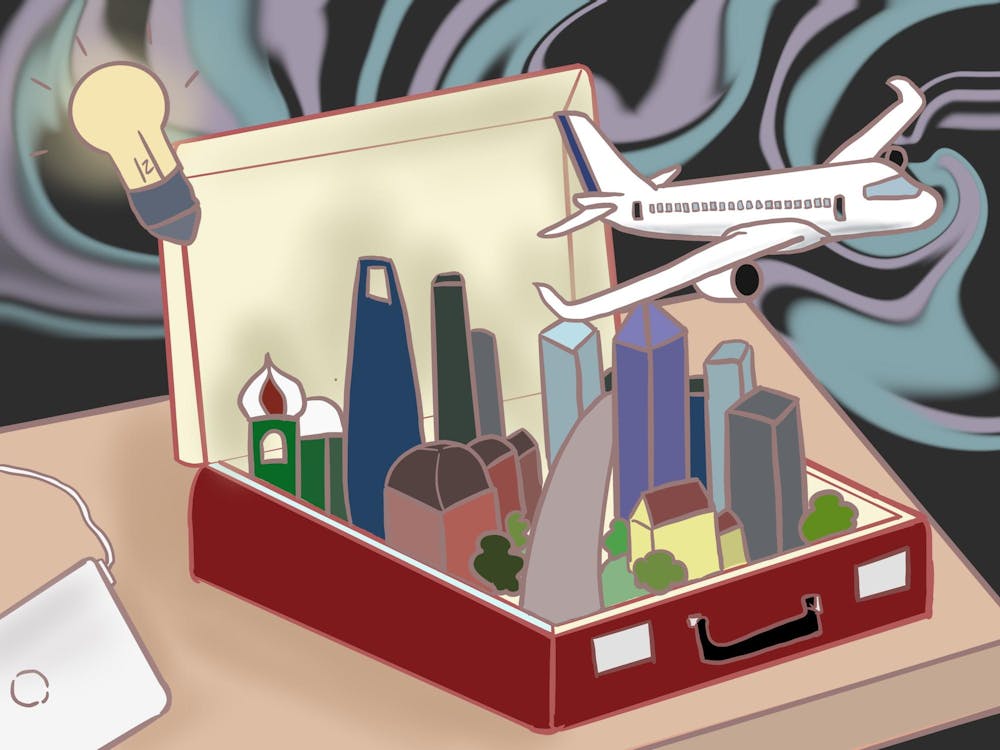Over the past two weeks, I’ve had the pleasure — if you can call it that — of attending a series of consulting career events on campus. Every student I met seemed exceptionally eager and their questions to the recruiters were practically dripping with their anxious sweat. How’s the work culture? What’s the recruiting process for Boston? What’s the New York office like? In the middle of this flood of enthusiasm, I felt like the only one asking: How do I apply abroad?
That was the case at each and every event I attended.
It’s a bit disappointing that we, as Brunonians representing such a diverse array of cultures and nationalities, can be so narrow-minded when it comes to where we choose to pursue careers. There are countless enriching opportunities abroad that should inspire Brown graduates to look beyond U.S. borders.
Just a quick glance at BrownConnect+ tells the story. There are over 10,000 registered alumni outside the United States, compared to over 90,000 within it. Clearly, most Brown graduates have historically stayed in the country. And it’s easy to understand why: The U.S has a robust job market and, for many students at Brown, it’s where their roots are.
But none of this necessarily means that the United States is the best place to start a career. In the age of globalization and digital connectivity, you have far more freedom to tailor your career path based on what you’re looking for — be it industry, lifestyle, values or growth opportunities.
If you’re considering a career in primary education, for instance, countries like Germany, Luxembourg and Turkey offer higher starting salaries than the United States. Not to mention the robust employment laws for teachers in Europe or the lower costs of living in Turkey. If you’re one of the many IAPA students on the development track, consider launching your post-grad years at a nongovernmental organization in Dhaka or Lagos, where hands-on experience is plentiful.
Across the American workforce , nearly two-thirds are searching for a new job. The average worker in the United States will have to make several career changes and work more than a dozen jobs. With this in mind, it might be a good idea to look at cities abroad. Perhaps it is in these destinations that you will find a more stable career in a city better suited to your needs. Remember, the job market is global, so your possibilities are too.
Living and working in a foreign country gives you a depth of cultural understanding that no semester abroad could replicate. When you’re immersed for years — learning the language, recognizing faces at the local grocery store and becoming familiar with the regional media and art — you build a kind of empathy and awareness that’s difficult to come by otherwise. Along with personal benefits, these acquired skills of initiative, adaptability and cultural fluency are increasingly valuable traits in today’s job market.
You might even find that certain countries align better with your lifestyle or values. For instance, India has a greater share of vegetarians in their population than the United States, optimal for someone struggling with a meat-restricted diet. Those looking for more accepting LGBTQ+ communities can investigate Amsterdam or London, which rank better in queer inclusion than many American cities.
That said, it’s important to acknowledge the impact that moving abroad can have on host communities. In Portugal, for example, the influx of digital nomads has hiked up the cost of living for locals. In Mexico City, waves of Americans have driven up rent prices and accelerated gentrification.
What these cases often have in common is that the newcomers are earning salaries from their home countries while living in places with lower average incomes. That’s not the same thing as truly working abroad. Get a job with an employer from the country you’re going to instead of relocating your remote job.
At its best, moving abroad isn’t a glorified vacation while working remotely for a company in New York City. It’s a commitment to integrating your professional and personal life into a new environment. It’s about forming real connections, contributing meaningfully to your community and embracing growth — not just comfort.
Shayyan Ahmed ’27 can be reached at shayyan_ahmed@brown.edu. Please send responses to this column to letters@browndailyherald.com and other opinions to opinions@browndailyherald.com.





